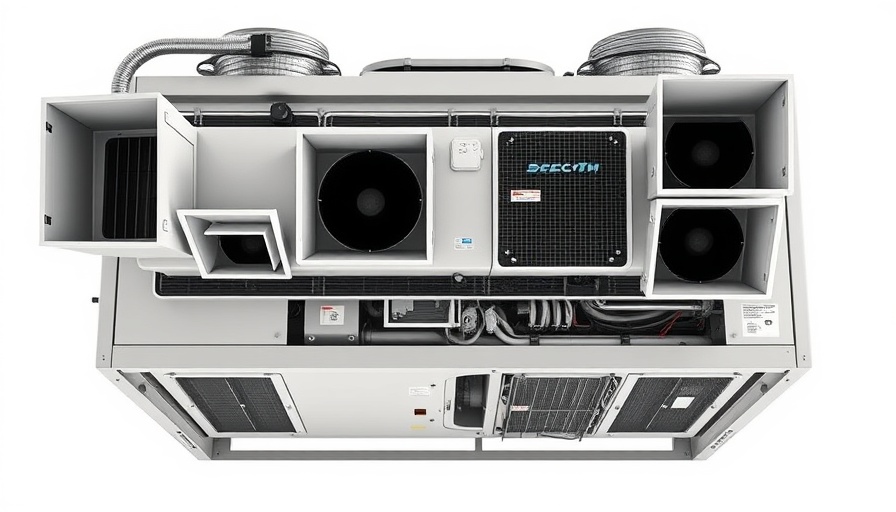
The Changing Landscape of Refrigeration Efficiency Regulations
In a surprising turn of events, the Trump administration, backed by the GOP, has overturned key refrigeration efficiency rules that were intended to champion energy savings and environmentally friendly practices. For homeowners and small business owners, this decision raises important questions about energy consumption in HVAC systems and refrigeration units.
Why Energy Efficiency Matters
Refrigeration efficiency rules were established to help reduce energy costs while minimizing the carbon footprint associated with HVAC systems. These standards aimed to promote technologies that would significantly lower energy consumption, ultimately benefiting both consumers and the environment. For home and business owners alike, understanding the implications of these changes is crucial in making informed decisions about energy use.
Potential Consequences of Rule Reversals
The rollback of these regulations could lead to a rise in inefficient cooling systems entering the market. Homeowners commonly seek to answer questions like, “What are the best HVAC systems on the market?” as they navigate their options for compliance and performance. Consumers are often torn between cost and long-term savings. With HVAC installation costs fluctuating, the urgency to invest in energy-efficient systems remains paramount.
Keeping Up with HVAC Innovations
As the market shifts post-rule reversal, property managers and business owners will need to keep an eye on innovations aimed at maintaining energy efficiency. Many are still wondering, “Are Lennox HVAC systems good?” This exploration is essential for those looking to find lasting reliability in their HVAC systems, especially when cheaper, less efficient options may be reintroduced. The need for high-efficiency products is underscored by rebates or incentives that still exist for energy-efficient installations.
Alternatives and Adaptations
Despite government regulations, the HVAC industry is full of conscientious manufacturers committed to energy-efficient technology. Building relationships with HVAC brands known for their innovative solutions can help homeowners and business owners secure systems that provide long-term savings. This includes developing knowledge about how to get free HVAC leads and understanding what ACs (air conditioning systems) can provide in terms of fresh air and efficiency.
Implications for Future Investments
For anyone in the market for a new HVAC system or considering an upgrade, it’s crucial to weigh the potential benefits against the backdrop of evolving regulations. It’s not just about asking, “What does ACs stand for in ACS Technologies?”, but also understanding how these systems function in providing fresh air within your home or business.
The Path Forward
While the recent changes may appear daunting, they also present an opportunity to stay informed and proactive. Homeowners and small business operators should prioritize HVAC solutions that align with energy efficiency goals, as well as budgetary constraints. As consumers ponder questions such as “Who makes the best HVAC system?”, fostering awareness about evolving rules will enhance decision-making processes.
In summary, while the reversal of refrigeration efficiency rules marks a significant moment in energy policy, understanding its implications is vital for anyone invested in HVAC. Staying updated will empower you to make informed decisions that reflect your values surrounding energy consumption and efficiency.
 Add Row
Add Row  Add
Add 




Write A Comment